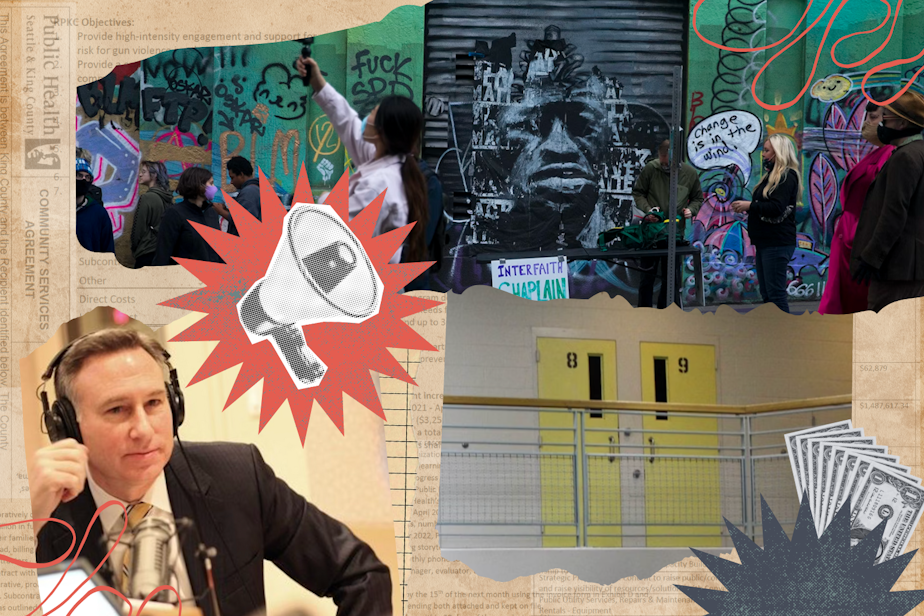King County Council tightens oversight of youth diversion programs

The King County Council is increasing its oversight of programs meant to keep at-risk young people out of courts and jail. The council voted unanimously this week to require information about outcomes of the county’s Restorative Community Pathways program.
Executive Dow Constantine must submit that information by the end of September, with the signoff of the King County Prosecutor, or $3.3 million in funding will be put on hold.
Under the Restorative Community Pathways program, King County contracts with a series of community nonprofits for court diversion. Prosecutors refer youth facing lower-level criminal charges to the program, which is meant to match youth with services that attempt to address the root causes of their alleged crimes. The program is known as “pre-filing diversion” because prosecutors agree to divert the case away from court rather than filing the potential charge.
But Councilmember Rod Dembowski, who sponsored the budget amendment, said reporting by KUOW this spring revealed lax tracking of youth participation and outcomes.
RELATED: King County gave millions to ‘No New Youth Jail’ activists to help kids — and then looked away
“The idea is good here,” Dembowski said, “but I think the county moved too quickly, tried to refer too many kids to too many organizations that weren’t ready from a capacity standpoint to do the work, and we just haven’t had enough transparency on this.”
He said councilmembers want to know more about what happens once prosecutors refer young people into the program, but that information has been hard to obtain.
Sponsored
“Dozens if not hundreds of youth are referred to the program and may never even be contacted, and may never participate in it," Dembowski said. "And then nothing is really done. So we’re spending tens of millions of dollars to support programs that may be providing very few services to very few youth.”
Reporting by KUOW also revealed that King County does not conduct its own background checks on youth workers, and that procedures by some organizations appeared to be looser than others.
"That’s very troubling to me, just from a care for our young people's perspective — also from a liability perspective for the county if something goes wrong," Dembowski said.
Under a council budget proviso approved on Tuesday, Executive Dow Constantine — whose Department of Community and Human Services contracts with the program’s service providers — must submit a letter by September 30 this year with extensive information, including the number of youth “actively being provided services” and a summary of the program’s outcomes.
The letter must also include a plan to evaluate the efficacy of the program by contracting with an external evaluator like the University of Washington. The proviso said the executive's letter “shall be signed by the prosecuting attorney” as well, “to ensure that the prosecuting attorney’s office concurs with the accountability and transparency measures established by the executive as described in the letter.”
Sponsored
Chase Gallagher, a spokesperson for Constantine, said in a statement, “Our goal is to fulfill this request from Council while continuing to focus our attention on our partnership with RCP Consortium members and the young people they serve.”
He added, “The amendment incorporates much of the work that is already being done to ensure effective and equitable access to services for youth who may otherwise be prosecuted. We welcome the opportunity to answer these questions from Council and to share the results of this critical work with them.”
Casey McNerthney, a spokesperson for the King County Prosecutor’s Office, said in a statement, “We continue to believe in the effectiveness of juvenile diversion through a community-led response, and this effort can only be successful if there is a true partnership between community and county, including meaningful oversight. The King County Prosecuting Attorney’s Office is supportive of meaningful oversight.”
2023 0154 Amendment 2
This budget proviso requires the Executive to submit new details about Restorative Community Pathways to the King County Council by Sept. 30, 2023.





